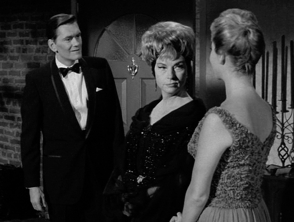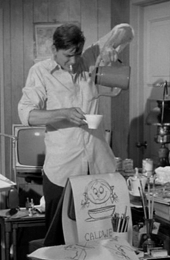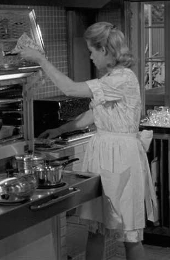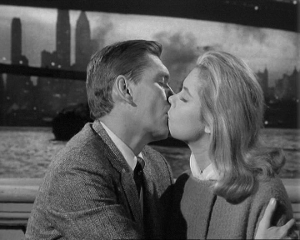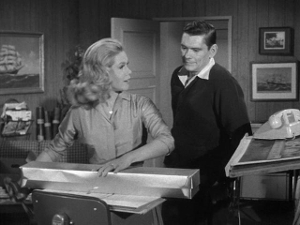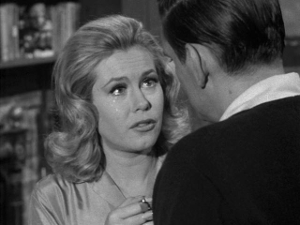It Doesn't Give You Cooties
Use the Proper Pronouns
Friday, March 10, 2017 3:58 pm
I enjoy Jim Gaffigan, the comedian. Yes, once you've watched his specials repeatedly, you see the patterns in his subject matter. But I enjoy him a lot.
During one bit he says this as a prelude to the main joke:
You can argue that language changes. So, yes, the loss of the generic "he" is leading to a loss, too, of sex-specificity in pronouns, at least for abstract males and females. So language happens. Language is what people speak. But it is truly a loss when a "woman" is no longer a "she" but is just another "they."
Anyhow, resist this nonsense. If you can't bring yourself to use the generic "he" when the sex is unspecified (and if you can't, you're silly), at least use the sex-specific pronoun that is appropriate to a subject that is clearly male or female.
During one bit he says this as a prelude to the main joke:
A woman can grow a baby inside their body. And then somehow a woman can deliver a baby through their body. And then by some miracle a woman can feed a baby with their body."Their"? I know he is speaking as we have all been forced to speak. But even when the sex of the person in question is quite known and unavoidable, he can not say "her." Again, this is commonplace these days. But what is really sad is that no part of him cringes; no part of him recognizes the hideous solecism.
You can argue that language changes. So, yes, the loss of the generic "he" is leading to a loss, too, of sex-specificity in pronouns, at least for abstract males and females. So language happens. Language is what people speak. But it is truly a loss when a "woman" is no longer a "she" but is just another "they."
Anyhow, resist this nonsense. If you can't bring yourself to use the generic "he" when the sex is unspecified (and if you can't, you're silly), at least use the sex-specific pronoun that is appropriate to a subject that is clearly male or female.
The Goblin Emperor
Hugo Awards 2015 - Novel by Katherine Addison
Friday, May 29, 2015 6:59 pm
I am a voter for the 2015 Hugo Awards. I am posting my thoughts about the candidate works. Be warned that spoilers abound.
Maia, the half-goblin and youngest son of the Emperor of the Elflands, banished with his mother from the court, inherits the crown when the Emperor and all other his other sons are killed in an airship accident (which was, in fact, no accident). Maia is not at all prepared and has to find his place.
To begin with, this novel passed one of my standard tests: I never cringed at the dialogue. Sometimes I cringed at what was being said, but never the way it was being said. None of it was cloying or cute. Indeed, none of the writing made me cringe. That may seem like faint praise, but it's not. Addison's style is controlled and effective. She revealed things in a sound order, with a sound pacing. Things followed one another well and I wanted to keep reading. Her fantasy world did not dazzle me and seems a bit conventional (even to me, who doesn't read much fantasy), but it worked.
Maia, the half-goblin and youngest son of the Emperor of the Elflands, banished with his mother from the court, inherits the crown when the Emperor and all other his other sons are killed in an airship accident (which was, in fact, no accident). Maia is not at all prepared and has to find his place.
To begin with, this novel passed one of my standard tests: I never cringed at the dialogue. Sometimes I cringed at what was being said, but never the way it was being said. None of it was cloying or cute. Indeed, none of the writing made me cringe. That may seem like faint praise, but it's not. Addison's style is controlled and effective. She revealed things in a sound order, with a sound pacing. Things followed one another well and I wanted to keep reading. Her fantasy world did not dazzle me and seems a bit conventional (even to me, who doesn't read much fantasy), but it worked.
In Vocation
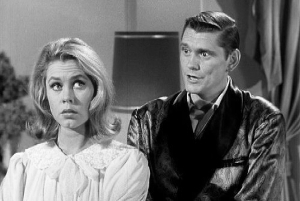 What does everyone know about Bewitched? It's about a free-spirited young witch whose uptight husband does everything he can to suppress her natural inclinations to magic.
What does everyone know about Bewitched? It's about a free-spirited young witch whose uptight husband does everything he can to suppress her natural inclinations to magic.
No. It's not.
Go back to the first season, before the show became focused on the farce, and you'll clearly see its theme. Abandon the feminist distortions and you'll see that Bewitched is about two newlyweds, thoroughly in love, who are trying to establish a normal, suburban life.
Witch and Wife
Monday, March 30, 2009 10:56 pm

No. It's not.
Go back to the first season, before the show became focused on the farce, and you'll clearly see its theme. Abandon the feminist distortions and you'll see that Bewitched is about two newlyweds, thoroughly in love, who are trying to establish a normal, suburban life.
"Unholy and Evil"
When the Culture Could Be Honest
Monday, May 16, 2005 2:16 am
Beware! Spoilers follow.
I was watching The Godfather: Part II the other day. I had not seen it in many years. I knew how the story would go; I was prepared for the powerful scenes. I had not, however, remembered the dialogue as such — and I was struck by what Kay says
I was watching The Godfather: Part II the other day. I had not seen it in many years. I knew how the story would go; I was prepared for the powerful scenes. I had not, however, remembered the dialogue as such — and I was struck by what Kay says
Marriage, Once Upon a Time
A Screwball Comedy Hints at Better Days
Saturday, July 10, 2004 2:51 am
In very old movies a married couple is usually seen to sleep separately, husband in one twin bed and wife in the other. Nowadays we snicker at this — and rightly so. Though the motive to this contrivance may have been modesty, the effect of it is prudery. The marriage bed, after all, is the proper place for sex. By showing one bed we would affirm what is right; by showing twin beds, on the other hand, we clumsily imply that sex has no fit role in a good clean world.
Sometimes, however, an old movie can be not prudish but simply naive, and naive in a way that does affirm what is right. Case in point: My Favorite Wife. This movie, having been made in 1940, does have that silly nonsense with the twin beds; but it also has a particularly wonderful moment of sense.
Sometimes, however, an old movie can be not prudish but simply naive, and naive in a way that does affirm what is right. Case in point: My Favorite Wife. This movie, having been made in 1940, does have that silly nonsense with the twin beds; but it also has a particularly wonderful moment of sense.
© 2004-25 David Skinner · All rights reserved
